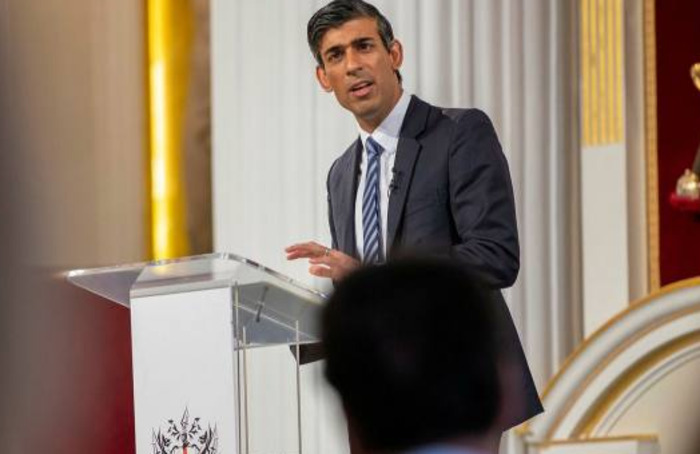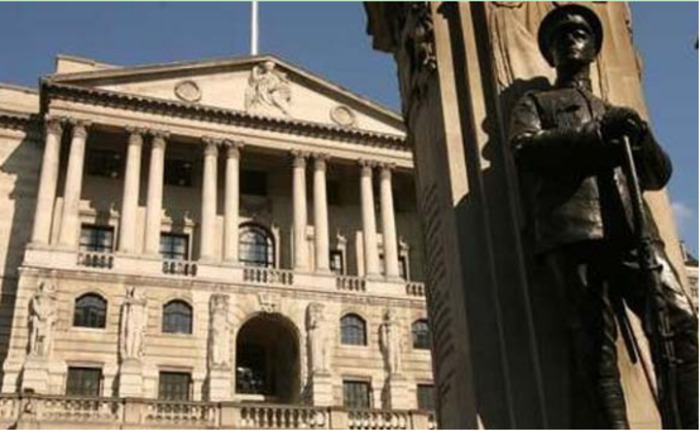UK recession expected to be worse
 2022-10-31
2022-10-31
 1343
1343
Britain's economic troubles could make it difficult for the Bank of England to meet analysts' and market expectations for central bank interest rates to be close to 4% by the end of the year, meaning there could be room for disappointment, leaving the pound particularly vulnerable to a sustained dollar rally. Clients should sell on rallies when GBP/USD moves back into the $1.15-$1.17 range and look for a pullback in the final months of the year, when the health of the UK economy is likely to show up in official statistics.
The last British government announced the largest tax cut plan since the 1970s, which once triggered a three-fold exchange of British stocks and bonds. The pound quickly fell to a record low against the dollar, and British bonds were sold off. The Bank of England had to intervene in bond purchases. After the announcement of the postponement of the fiscal plan, the yield on the 10-year bond turned lower and the yield on the 30-year bond rose slightly.

The recession in the UK will be deeper and earlier than in the Eurozone. Economist Salomon Federer said the post-Russian-Ukrainian gas supply shock, and the resulting high energy prices, were pushing Europe into a recession this winter. Eurozone and UK PMIs fell further in October. He believes that the slump in the British economy may be more severe than that in the euro area, which may have already started in the third quarter and the euro area in the fourth quarter. Berenberg forecasts a peak-to-trough decline of 2.2% in UK GDP and 1.7% in the euro zone.
Britain's September price index (CPI) rose 10.1% year-on-year, returning to its highest level in 40 years, higher than market expectations of 10%, and higher than August's 9.9%. The Bank of England has also previously warned that in order to help address the soaring cost of living, the rate hike in November may need to be higher than previously expected. In his first parliamentary questioning after taking office on Wednesday, Sunak also said "addressing inflation will be the current focus of policy".
The Bank of England will also start the active quantitative tightening process on November 1. As early as February this year, the Bank of England began to passively implement quantitative tightening. At the interest rate decision on September 22, the Bank of England announced that it will actively sell British government bonds from October 3 and actively quantitative tightening. After the previous tax cuts caused market turmoil, the Bank of England announced emergency bond purchases to rescue the market, and the plan to sell British government bonds originally scheduled to start on October 3 was postponed to October 31.
Mark Dowding, chief investment officer at Bluebay Asset Management, said it was unclear whether the BoE would be more hawkish than before its September meeting as the new government intends to "completely rework fiscal planning", especially as the pound "is also on the rise." pick up". Bloomberg Economics analyst Ana Andrade believes that "this has little impact on monetary policy, and a 75 basis point rate hike is still the most likely outcome, but we also expect that from December, the closing The pace of tightening will slow down.”

Joseph Capurso, head of international economics at Commonwealth Bank of Australia, said: "With Hunt's confirmation for re-appointment as chancellor, we judge that the political bearishness for sterling is fading. However, the pound still faces a number of headwinds, such as economic Imminent recession and widening current account deficit."
Andrew Goodwin, chief UK economist at Oxford Economics, said: "We think the election of Sunak as prime minister brings some positives to the UK economic outlook. But both fiscal and monetary policy will be tightened, leading to the possibility of There's a recession, and that means a return to an orthodox economy that has its own risks." The new leader will almost certainly stick to Chancellor Hunt's U-turn on tax cuts in September's "mini-budget". One of the most significant reversals is Hunter's decision to raise corporate tax next April, which Sunak planned when he was chancellor.
Adam Cole, chief foreign exchange strategist at RBC Capital Markets, said: "With the confirmation of the UK's next prime minister and Sunak marking a decisive shift in fiscal orthodoxy, the risk premium for sterling assets has compressed back to September 23 The prevailing level before the daily mini-budget created chaos."
The above information is provided by special analysts and is for reference only. CM Trade does not guarantee the accuracy, timeliness and completeness of the information content, so you should not place too much reliance on the information provided. CM Trade is not a company that provides financial advice, and only provides services of the nature of execution of orders. Readers are advised to seek relevant investment advice on their own. Please see our full disclaimer.

CM Trade
As a world leading financial trading platform, CMtrade Provides comprehensive one-stop trading services and opportunities for traders.
[Products]
The platform provides over 32 kinds of popular financial products such as forex, precious metals, crude oil, indices, cryptocurrencies and more.
[System]
2 top trading systems CM Trade MT4 / CM Trade APP, powerful and easy to operate
[Service]
Comprehensive market news, professional market analysis, 7*24 hours online customer service
[Advantage]
Low cost, high leverage, flexible one-stop all day two-way trading.
[Authority]
Licensed and strictly regulated by authorities. Traders deposits are independently kept by the bank. Fast deposit and withdrawal. Fair, efficient and transparent trading environment.
CM Trade Mobile Application
Economics Calendar
MoreYou May Also Like



 简体中文
简体中文
 ภาษาไทย
ภาษาไทย
 繁體中文
繁體中文
 Indonesia
Indonesia











